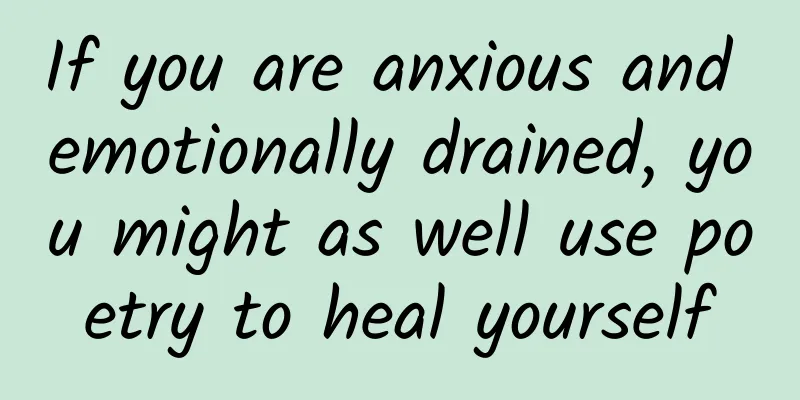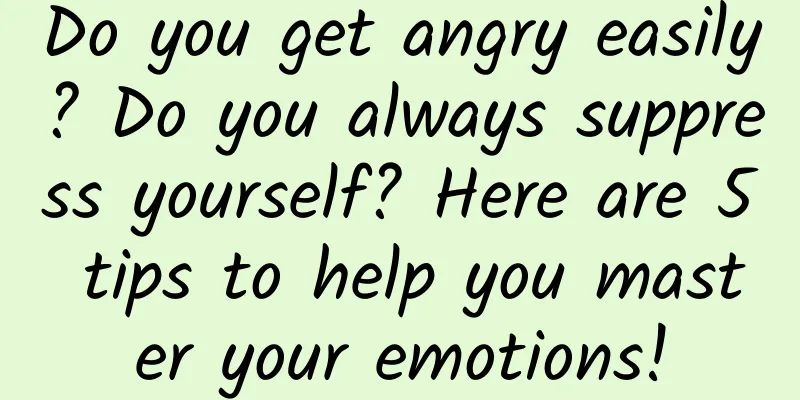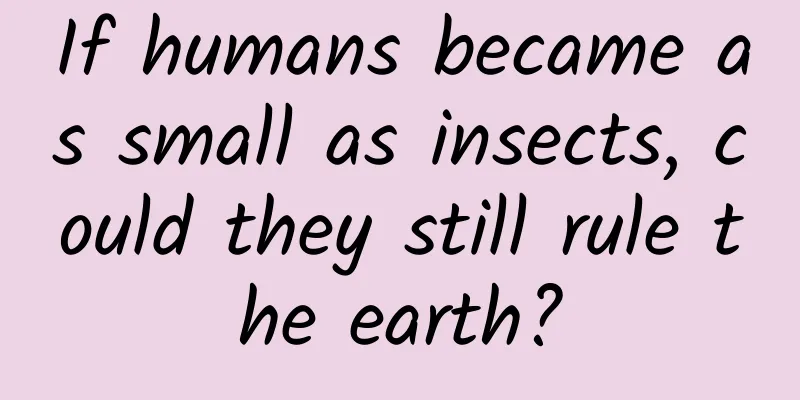If you are anxious and emotionally drained, you might as well use poetry to heal yourself

|
© TED Ideas Leviathan Press: This kind of tingling, electric and goose-bumped sensory experience obtained while listening to music or reading - I personally prefer Nabokov's expression of "looking for the excitement between the shoulder blades". Many years ago, I also used "waves surging on the back" to express this magical feeling in a poem, which can be regarded as a tribute to Nabokov. Have you ever had this experience: when you read some poems or hear some music, you feel an electric current running down your spine to the back of your neck? Almost at the same time, goose bumps appear all over your body unconsciously. We call this sensory experience frisson. In French, it can be interpreted as "a tremor of the whole body due to aesthetics." Some researchers even jokingly call it "skin orgasm." Literature, such as novels and poetry, and emotionally appealing music are most likely to trigger this kind of skin orgasm. However, the opposite experience of the so-called skin orgasm is also magical. Many years ago, when I heard Wallace Stevens recite his poem "The Snow Man", I really felt very peaceful in my heart and had a real feeling of being healed - I don't know if this was due to the rhythm and rhyme of the poem (which is homologous to music) or Stevens's distinctive low voice. Poet Wallace Stevens (1879-1955). © Poetry Foundation According to the popular "Autonomous Sensory Meridian Response" (ASMR), poetry can be regarded as an ultimate experience in the brain. But the question is, whether it is "electricity passing through the skin" or a very comfortable sense of tranquility, how do art forms such as poetry achieve this? A study published in 2017[1] showed that the act of reciting poetry can activate the brain’s main reward circuit, the mesolimbic pathway. Music can do the same, but researchers have found that the brain response triggered by poetry is unique: although the exact mechanism remains unclear, in the medical field, poetry, music and other non-pharmacological adjuncts appear to be able to relieve patients’ pain and reduce the amount of opioids they need[2]. This may sound a bit unbelievable, but in fact, mind-body problems - mental/psychological and physical illnesses are two sides of the same coin. They are never a binary relationship of opposition. For example, a person who has been under chronic stress for a long time may seem to be normal on the surface, but in fact, this chronic stress is like a wall that slowly seeps water, causing some structural changes to your mind and body. Yes, you read that right, it is a structural change. A Swedish study showed that subjects who were under chronic stress had thinner prefrontal cortices, thicker amygdalae, and smaller caudate nuclei. Thinning of the prefrontal cortex was associated with poorer emotion regulation ability [3]. © South China Morning Post In other words, your mental/psychological stress and anxiety lead to changes in your brain structure in a physical sense. In this sense, it seems not difficult to understand why patients’ pain, depression, and hope levels may change when they hear poetry being read. In 2016, researchers from the University of Maranhão conducted a randomized clinical trial involving 65 patients who were all receiving treatment at a cancer treatment center. When music or poetry was played to them, the researchers found that both art forms of adjunctive therapy reduced the subjects’ pain and depression levels to similar degrees, but only poetry increased the subjects’ hope levels [4]. The researchers speculate that this may have something to do with poetry’s ability to break the so-called “code of silence” — the taboo around talking about one’s feelings about illness. After listening to several poems from Claudia Quintana’s collection Linhas Pares, one participant said, “When I heard these poems, I felt calmer. The extreme pain and sadness disappeared. These poems were important, and they told me that I was not alone. ” © Halisia Hubbard/NPR We can also understand it this way: once certain poems touch the depths of your soul, this healing power begins to manifest, and the same is true for people who are suffering from illnesses - the reversal of psychological mechanisms provides the possibility for the recovery of physical functions. Poetry achieves the purpose of all languages in a beautiful and condensed form, that is, to capture and portray the real world and transform it into something that can be sorted out and has profound meaning. More importantly, once the entire medical system realizes that for patients, treatment itself is not just a series of cold blood oxygen levels, pulses and heart rates, but also means more delicate emotional care. Doctors and patients sometimes think that each other understands the topic the same way, but this is not the case. Language is not always transparent, and sometimes our vocabulary is not enough to describe our emotions. To some extent, only poetry can deal with this problem. Of course, I have no intention of exaggerating the role and effectiveness of poetry as an auxiliary therapy. Although reading a sonnet every day cannot help diabetic patients control their blood sugar, it may help prevent diabetic patients from feeling exhausted about controlling their disease. © Click Hole For example, when we lament that life is short and time flies, the deep emotional feedback we get from saying “time flies” and reading a poem by Horace must be different: ...be wise, filter the wine, cut off Hope is long, life is short. As we were talking, the jealous time had passed. Take advantage of today, don't let tomorrow deceive you. —Horace, Odes, Book I, No. 11 Moreover, the rhythm and rhyme of poetry, like music, can make listeners feel synesthesia. For example, high-frequency sounds make people feel bright, excited, and clever, while low-frequency sounds make people feel dim, suppressed, and dull. Readers' different understandings of sounds will give them certain emotional attitudes, and such sounds are considered "emotional sounds" in neurocognitive science. Studies have shown that emotional speech processing mainly goes through three stages: emotional salience perception, related semantic processing, and emotion recognition [5]. This means that the processing of "emotional speech" information is different at different stages. When our brain processes "pick today, don't let tomorrow fool you", it first needs to perceive and recognize relatively rare words such as "pick", and then the semantic processing, through internalized imagination, forms emotional resonance. It is worth noting that the healing power of poetry comes partly from its special format of line breaks, which makes it look extremely concise and effective, and at the same time, it makes it easier for listeners and readers to extract the words they think are most important. Poetry is not only healing for patients, but also for many doctors. Poetry is the medicine they need. They write about their helplessness about the limitations of their medical skills and the infinite sadness of witnessing all kinds of illness and death. John Keats (1795-1821), who gave up medicine to pursue literature. © Poetry In Voice In the 19th century, Englishman John Keats devoted himself to poetry after practicing medicine for many years and became one of the most outstanding British poets. Today, American medical journals, including the Journal of the American Medical Association and the Annals of Internal Medicine, publish full pages of poetry written by doctors. “One of the reasons poetry is so powerful is that it gives people a voice. It allows us to really hear another person’s voice and relate to what they’re going through, ” said Rafael Campo, a physician and poet at Harvard Medical School who encourages his patients to document their battles with disease in poetry. Sometimes, he shares his own poems with his patients. Daniel Becker, a physician and poet at the University of Virginia School of Medicine, is one of a number of American doctors who have embraced the healing power of poetry: “Writing poetry has made me curious about people and why they come to my clinic, not just about their diagnosis, medication list and test results, but how they feel about their chronic or acute illness.” Perhaps, more importantly, poetry conveys a transcendent understanding of the spiritual level of the universe, allowing patients, doctors, and even every ordinary person like us to feel the power of nature and the sacred at a certain moment. This is also the deep feeling we get when we watch the movie "Interstellar" - in the film, old Professor Brand repeatedly recites the poem of Welsh poet Dylan Thomas: Do not go gentle into that good night, Old age should burn and rave at close of day; Rage, rage against the dying of the light. Do not go gentle into that good night At sunset, old people should burn and cry out Rage against the dying of the light —Dylan Thomas, Do Not Go Gentle Into That Good Night, 1947 In 1955, when Einstein learned that his close friend, Swiss engineer Michele Besso, had passed away, he wrote in a condolence letter to Besso's family: "... He left this strange world a little earlier than I did, and this means nothing. People like us who believe in physics know that the distinction between the past, present and future is nothing more than a persistent and stubborn illusion." Einstein's words can also be recited as poetry to heal our dark and restless hearts. References: [1]pubmed.ncbi.nlm.nih.gov/28460078/ [2]pubmed.ncbi.nlm.nih.gov/20403600/ [3]pubmed.ncbi.nlm.nih.gov/28108490/ [4]pubmed.ncbi.nlm.nih.gov/27529806/ [5]www.ncbi.nlm.nih.gov/pmc/articles/PMC3689289/ By Eduard Proofreading/tim This article is based on the Creative Commons License (BY-NC) and is published by Eduard on Leviathan The article only reflects the author's views and does not necessarily represent the position of Leviathan --- Leviathan has prepared several poetry collections for you, hoping that you can find your own spiritual current in the hidden world of these branches: 1903 limited edition of 25 copies of the workshop edition of "Ballads & Sonnets by Dante Gabriel Rossetti" 1918 Limited Edition Signed by Swinburne, The Springtide of Life, with Beautiful Illustrations by Rackham The Poems of Percy Bysshe Shelley (1901) (Valley Press) 1789 A New and Literal Translation of Juvenal and Persius (2 volumes) Virgil's Georgica, 1770 1935 Special Edition of Homer's Odyssey and Iliad L'Année Terrible by Victor Hugo in the late 19th century 1887 With the Poets: A Selection of English Poetry |
<<: Beware! Many people mistake esophageal cancer caused by eating for pharyngitis
Recommend
Monument Valley design concept is learning is earning
We call those legendary, promising and unique com...
How to increase App traffic? What are the ways of App traffic exchange cooperation?
What is exchange volume ? Traffic exchange means ...
3.15 Know More | Uncover the Truth Behind “Free WiFi”
The 3.15 Gala exposed that the "free WiFi&qu...
Strategic approach to marketing to Generation Z!
In recent years, two-dimensional culture such as ...
Xiaomi is on the left and Meizu is on the right
Meizu has been waiting for a long time for the op...
Is the freezer a "safe" for food? Here comes the July 2023 scientific rumor list →
Should you drink a lot of boiled water immediatel...
User growth: How to retain new users?
Retention of new users is a very important part o...
Why are domestic mobile phones obsessed with building an "ecosystem"?
[[131986]] Once upon a time, China's smartpho...
Is it better to sit or squat? Should you close the lid when flushing the toilet? Many people have been wrong all along...
Expert of this article: Wang Xiaohuan, Doctor of ...
Real-life and analysis of community operations
The concept of community operation is very popula...
BYD Xia enters the MPV market. How should GL8, Senna, Dreamer and other previously advantageous models respond?
The trend of internal competition in the automoti...
How to use the Guangzhou maternal and child mini program? How to promote the maternal and child mini program mall?
After the country relaxed the "three-child p...
Contact information about Chengdu Didao Audition Site
Contact information for Chengdu Didao audition ve...
Ranking principle and advantage analysis of Wancibaping promotion system
The concept of Wancibaping promotion: (WeChat: 18...
Luo Zhenyu: From a media person to an entrepreneur, our 6 suggestions for content entrepreneurs
Luo Pang, who transformed from a media person int...









